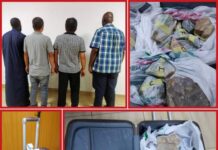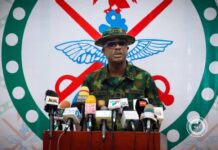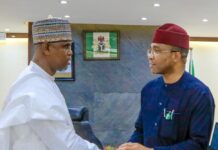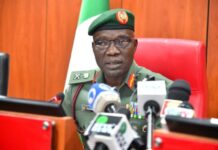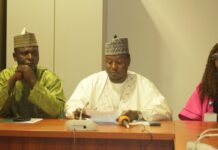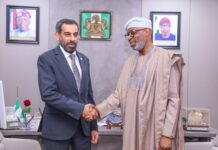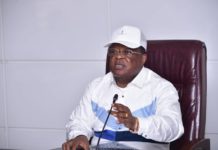The continued refusal of Mali, Burkina Faso, and Niger to return to the bloc after withdrawing their membership on January 28, has constituted a source of great worry to the Economic Community of West African States (ECOWAS).
The military juntas in the three countries exited ECOWAS, accusing ECOWAS of becoming a threat to its members, of being “under the influence of foreign powers,” and of betraying its founding principles.
According to ECOWAS President, Omar Alieu Touray, in a speech at the 92nd Ordinary Session of the ECOWAS Council of Ministers in Abuja, despite several entreaties, including softening of sanctions and invitations to technical meetings, the three countries have not provided a clear indication of their willingness to rejoin the community. This has raised concerns about the stability and unity of the region.
His words: “I regret to report that we are yet to establish a framework for negotiation with the authorities in Mali, Burkina Faso, and Niger on their decision to withdraw their membership from the community. “Despite our entreaties, in the form of softening of sanctions, invitation of the governments to technical meetings, and request for meetings, we have not yet gotten the right signals from these Member States. We have, however, gotten positive assurance from Guinea on the unity of our community,” Touray disclosed.
Touray further stressed that the current international system is undergoing significant changes, affecting member states and playing a role in the crisis. To address these challenges, he proposed a special summit to examine the impact of global developments on ECOWAS and its member states. “The developmental goal of our integration is increasingly being questioned with the current dire crises of food insecurity, inflation, violent extremism and terrorism, forced displacements, youth bulge and unemployment, geo-political tensions and pressures exerted on our governments and civil society.
He further stated: “It is becoming increasingly evident that we need to further pool resources and pursue collective self-reliance for the benefit of our populations. This is only possible if we agree to establish common positions and objectives with minimum points of cooperation to deal with the current challenges and commit strongly to realising them. This is not the time to work at cross purposes. We need to work in unity and solidarity,” .
The summit aims to re-think integration in terms of governance, relations with external partners, community norms and values, and approaches to emerging issues such as new technologies, social media, and fake news.
On terrorism, Touray noted that the Action Plan against Terrorism (2021-2024) has not been fully implemented due to a lack of funding. He appealed to member states to contribute financially to the plan and called for a meeting of experts to conclude a financing plan for tackling terrorism.
The ECOWAS President also announced that the community will celebrate its 50th anniversary in May 2025 and urged member states to contribute to the celebrations by outlining their contributions to the development of ECOWAS since its inception. “Some days ago, our Ministers of Finance and Defence met to examine our proposal for raising the funds to finance the operationalisation of the ECOWAS Counter-terrorism Force.
“The outcome of this meeting has turned over the task to each member state to propose ways and means of making mandatory contributions to the Fund. We do hope that we can convene the member states experts as soon as possible to conclude on the financing plan for tackling terrorism, which is harming the welfare of our people, distorting our economic stability and development plans,” Touray stated.
The Nigeria Minister of Foreign Affairs, Yusuf Tuggar, said efforts are in place to enhance the ECOWAS Social Protection Framework and Operational Plan to improve the living standard of the citizens within the region.
Tuggar, who is the chairman of the ECOWAS Council of Ministers, therefore called for more dedication, commitment, and unity amongst its members. “While these achievements mark important strides towards regional integration, economic growth, and security, they also serve as a reminder of the work that lies ahead, especially in existential West African priorities such as climate change and patterns of international trade and finance.
“We have made significant progress. But our region still faces complex challenges that require dedication, commitment, and concerted action. I therefore implore all of us to maintain the strength of unity and cooperation that has always guided our deliberations,” he appealed.
END










